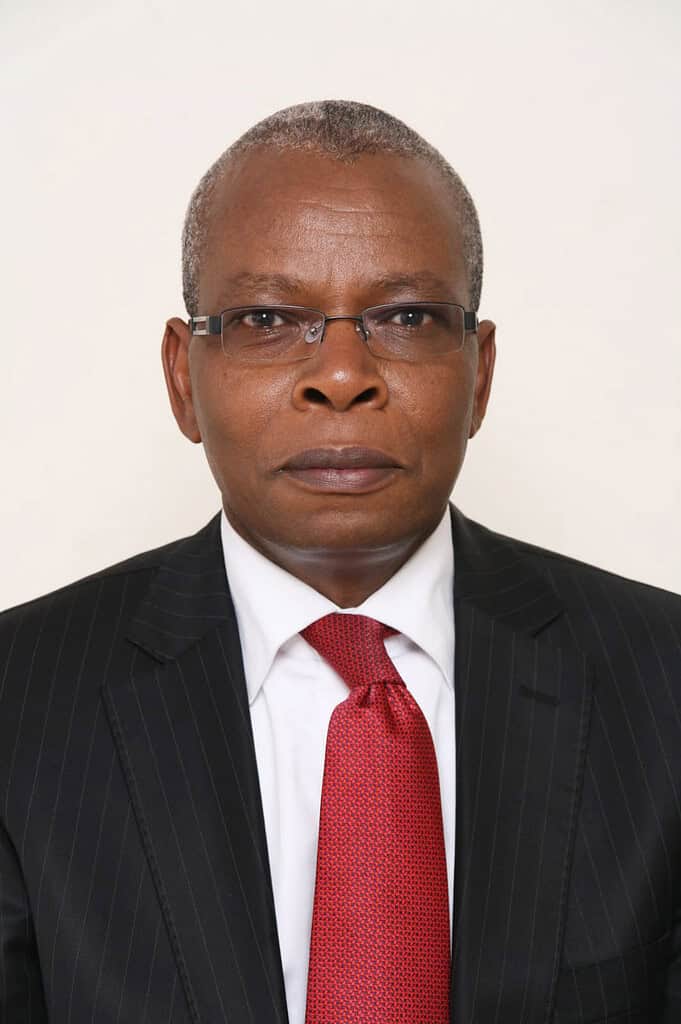African governments are not collecting enough taxes to fuel their development plans. Ideas for making up the difference abound; implementing them is not so easy.
Africa is struggling to change tax structures that fail to bring in sufficient revenue, that leave too many potential taxpayers outside the net, and that allow too much revenue leakage due to corruption. Poverty on the continent is high, public investment to strengthen health, education, and infrastructure is low, and economic activity remains sluggish as a result.
The low tax-to-GDP ratio is partly due to African governments’ failure to make clear to households and business the benefits of the taxes they collect, argues Gituro Wainaina, a Kenyan economist and lecturer at Nairobi University’s School of Business.
How big is the problem? The Organisation for Economic Co-operation and Development (OECD) puts Africa’s tax-to-GDP ratio for 2021—the unweighted average for 33 African nations—at 15.6%, compared to 19.8% for Asia and the Pacific, 21.7% for Latin America and the Caribbean, and 34% for the OECD itself. And, according to the African Development Bank, although 28 African countries recorded an increase in tax revenue in 2022 relative to the five-year average prior to the outbreak of Covid-19, only 21 countries had tax-to-GDP ratios above 15%.

businesses that are supposed to be in the tax
base are not there. The reason is that we don’t
have data on the businesses.
“People, wherever they live, including Africa, want to pay taxes,” he says. “However, there is a rider; they must see the benefits of the taxes. And that is one of the biggest challenges we have on our continent. Whether you are talking about Nigeria, whether you are talking about South Africa, Ghana, Uganda, Rwanda, or Kenya, the biggest challenge is, ‘We pay taxes, but we don’t know what the taxes are doing.’”
Governments know they have a problem. Last year, Nigeria set up a Presidential Fiscal Policy and Tax Reform Committee, headed by Taiwo Oyedele, a former fiscal policy partner and Africa tax leader at PwC. The committee has promised to revamp Nigeria’s tax system, reduce the number of taxes, and widen the tax net. Its report is expected soon.
The distance from proposed solutions to action can be long if not endless, however, and plugging the perceptual gap in the social contract is urgent if Africa is to turn around its weak tax structure, says Ruth Arokoyo, former director of Nigeria’s Federal Inland Revenue Service, and now a tax consultant.
“What is the government doing with the revenue it collects to encourage the people to comply voluntarily?” she asks. “Government is supposed to be responsible for providing at least the basic amenities that will make businesses thrive. The government is not doing well in this area.” That leaves it to the private sector to pick up the slack—but its offerings can cost more than many households can afford.
“There are businesses in [some Nigerian] states and local governments that construct the roads to their factories,” says Arokoyo. “They provide water and amenities to the villages where they operate. But when a business is the one providing these infrastructures, its goods are very expensive.”
Even those citizens and companies that voluntarily pay taxes get exasperated when tax administrators discover through audits that they are not paying enough and place additional assessments on them, Arokoyo adds. They would ask, “What is the government doing for us?”
Widening the tax net is recognized as the first step, she notes, and this includes addressing massive tax evasion. But many governments lack the information to get started. “Many people and businesses that are supposed to be in the tax base are not there,” she says. “The reason is that we don’t have data on the businesses.”
African governments are now expanding their tax dragnets to include multinational corporations operating on the continent and pressing other governments to cooperate with them to combat tax avoidance or evasion by these MNCs. As part of the cooperation, the OECD now requires the corporations to file country-by-country returns on their sources of income. Thus, through an Automatic Exchange of Information, an African country can seek details of the accounts of a company that operates within its jurisdiction but chooses to file its returns to its headquarters. “This way, companies cannot hide where they are operating and deriving revenue,” says Arokoyo.
Some African countries want to go further. In September of last year, Nigeria called for the UN’s convention on tax matters to set new rules specifically compelling multinationals to pay taxes to governments in the places where they derive revenue.

“Taxation is based on residence,” says Godwin Ukah, an Abuja-based economist and chartered accountant. “The international oil companies’ income derived in Africa should be taxed in Africa.” The issue is also being addressed through double taxation treaties that Nigeria is striking with other governments.
Some local companies operating online have also been evading their taxes, Wainaina says, as are tourists from Europe who come to Kenya or Tanzania but pay for everything in Europe, starting with their airline flights and accommodations.
“That’s something Africa should look into,” he says. “There must be a kind of tax to recognize that they are spending here. They are using facilities, they are using the roads, and they are using the airports.”
Wainaina advocates a supply-side economic policy for Africa that would emphasize raising production to grow a larger domestic tax base. A former chairman of the Kenya School of Government, he also headed Vision 2030, the government’s long-term plan to transform Kenya into a “newly industrializing, middle-income country providing a high quality of life to all its citizens by 2030 in a clean and secure environment.”
In practical terms, the aim of Vision 2030 is to “minimize taxes now to reap the benefits later, when higher production results in increased investment and income and ultimately leads to higher tax revenue,” Wainaina adds.
Such incentives can be abused or circumvented, however: a problem Nigeria is now experiencing, Ukah warns.
The country has a graduated corporate tax rate: 30% for large corporations with an annual turnover of at least of one billion Nigerian naira (approximately $602,050), 25% for small companies with less than N1 billion. Companies with annual turnover of N25 million or less are exempt. Lawmakers who exempted small enterprises expected them to reinvest part of their profits for expansion that would produce greater turnover and push them into the taxable brackets.
“But in Nigeria, the small companies tend to be larger in volume, and because of the insensitivity of Nigerians to taxation, many people now create multiple companies whose turnover will not be more than N25 million so that they don’t pay tax at all,” Ukah says. This in a country that lacks the records of taxable entities needed to facilitate their tracking. “If we had records the way it is done in the developed world, we would be able to know who and who are splitting,” Ukah adds. “I know it is being abused.”
Then there is the informal sector, which is huge in Africa and not easily accessible for taxation purposes.
“The Kenyan economy is dominated by subsistence agriculture and a large informal sector, which are difficult and uneconomical to tax,” notes Kenya’s National Tax Policy. “Whereas the informal sector is expanding, its contribution to revenue remains low as it is largely cash-based and characterized by poor record keeping. This has led to overreliance on the formal sector for tax revenue.”
To solve the problem, Arokoyo contends, African governments must register operators in the informal sector.
“If we have their records and we are monitoring them, when they grow and they are supposed to pay tax, we will be able to tax them,” she says. “But if we don’t have their records, we cannot tax them at the appropriate time.”
The post Africa’s Tax Deficit appeared first on Global Finance Magazine.
